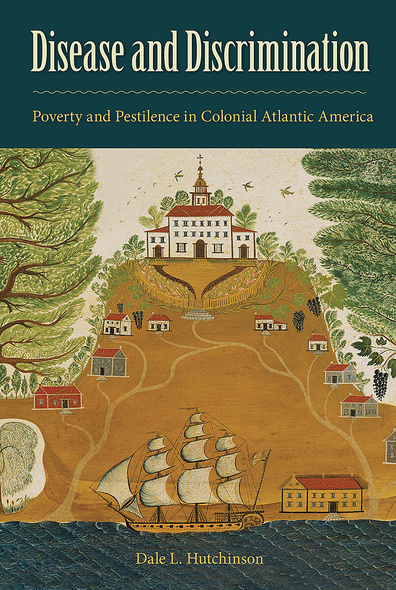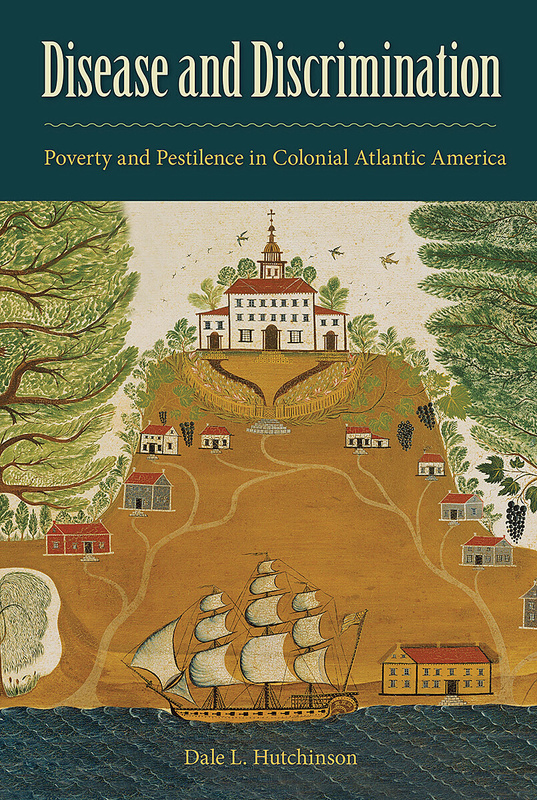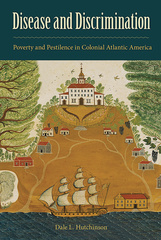
Disease and Discrimination
Poverty and Pestilence in Colonial Atlantic America
Choice Outstanding Academic Title “Fascinating yet sobering, this volume highlights the important role that social and political causes of poverty and poor living conditions, beyond the presence of infectious pathogens themselves, play in disease epidemics and high mortality.”—Megan A. Perry, editor of Bioarchaeology and Behavior: The People of the Ancient Near East
“Hutchinson effectively argues that disease is not an event but a process and then wonderfully illustrates how the interaction of culture and illness shaped the history of the eastern seaboard from the sixteenth through the nineteenth centuries.”—Marie Danforth, University of Southern Mississippi
Disease and discrimination are processes linked to class in the early American colonies. Many early colonists fell victim to mass sickness as Old and New World systems collided and new social, political, economic, and ecological dynamics allowed disease to spread.
Dale Hutchinson argues that most colonists, slaves, servants, and nearby Native Americans suffered significant health risks due to their lower economic and social status. With examples ranging from indentured servitude in the Chesapeake to the housing and sewage systems of New York to the effects of conflict between European powers, Hutchinson posits that poverty and living conditions, more so than microbes, were often at the root of epidemics.
A smorgasbord of history, anthropology, economics, ecology, geography, and art history.’—Choice ‘A skillfully crafted social history of disease that fully comprehends the factors leading to epidemics and will challenge the way historians and historical archaeologists think about the consequences of conflict and contact in colonial America.’—Historical Archaeology ‘Reveals how crucial context is in the production of variable health outcomes in human populations. . . . An excellent example of the holistic nature of anthropology and how it produces a richer understanding of phenomena than is possible if we attend only to each individual contributing factor in isolation.’—American Antiquity ‘Hutchinson dismantles narratives of disease that portray early America as a place in which all were equally susceptible to pathogens. He argues instead for the importance of context—social, political, economic, and ecological—in properly understanding the nature of disease.’—H-Net Reviews ‘Hutchinson does more than demonstrate how colonists contributed to the transmission of disease; he demonstrates the interconnectedness of the Atlantic world.’—North Carolina Historical Review
Dale L. Hutchinson is professor and associate chair of the Department of Anthropology at the University of North Carolina at Chapel Hill. He is the author of Foraging, Farming, and Coastal Biocultural Adaptation in Late Prehistoric North Carolina and Bioarchaeology of the Florida Gulf Coast: Adaptation, Conflict, and Change.





